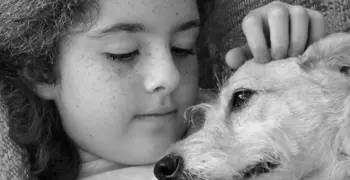Change Your Thinking about Planetary Health

Becoming an advocate for planetary health involves, for many of us, a change in the lifestyle choices we make every day. But in order to make sustainable, lasting change in our lives, we need to investigate the beliefs, thoughts, and feelings that shape our choices.
Two questions that are important to investigate are:
- How important is it to me to have a livable planet for humans in 2100?
- Where do my own values and sense of purpose align with planetary health?
Notice your reactions
Try this: close your eyes and relax. Take a deep breath and let your attention rest on the sensations of your body. Ask yourself: "How important is it to me to have a livable planet for humans in 2100?" Pay attention to the response in your body. Do you feel energized, with a lightness in your body or a tingling in your abdomen? Or perhaps you feel heavier, as if taking a breath becomes slightly more difficult. What about your thoughts and feelings? Do you feel skeptical or defeated, motivated or inspired?
Explore mindfulnessLearning to notice your unconscious responses can help you identify where you are right now, and what your next step might be. Maybe you are overwhelmed by feelings of urgency for the planet's health, and you feel stressed - if so, practicing relaxation techniques might be the right first step before committing to an action plan. Maybe you don't quite understand the connection between the environment and your own wellbeing, and you want to seek out more education.
Or maybe you feel engaged and eager to take action to reduce your impact on the earth's natural resources, and you are ready to take a big step by changing your behaviors or volunteering for an organization dedicated to global environmental health.
Connect with purpose
Having a deep sense of purpose is an important factor in making choices that support a healthy planet. Living closely to personal values such as equity, health and safety, and compassion for others can strengthen your resolve to work toward environmental justice and planetary health. Perhaps you have feelings of despair when you think about the world you are leaving for your grandchildren or future generations, and this increases your resolve to do something now.
Live a purposeful lifeIn addition, you can find ways to use your unique talents and passions to find your personal contribution - such as utilizing your social skills to talk to friends about climate change, or volunteering your time as a professional accountant to help a nonprofit organization with their books.
For some, a sense of purpose is bound up with spirituality, which emphasizes a sense of interconnectedness among all living things. Understanding this interconnectedness, and contemplating it through practices such as meditation or prayer, can bring clarity to the relationship between ourselves and our environment.
Rethink convenience
 For many people, making planetary health a priority requires a shift in values, from short-term wellbeing to long term. It is easy to fall into a pattern of seeking convenience and instant gratification, especially in our consumer-driven society. But the choices that come from this type of thinking are often hard on the planet. Disposable plastics may save time on dishwashing, but they clutter the planet's landfills. Hopping into your car to drive to the post office may be easier than getting your bike out of the garage or catching the bus, but it contributes to the growing amount of greenhouse gasses and pollution that cause global warming.
For many people, making planetary health a priority requires a shift in values, from short-term wellbeing to long term. It is easy to fall into a pattern of seeking convenience and instant gratification, especially in our consumer-driven society. But the choices that come from this type of thinking are often hard on the planet. Disposable plastics may save time on dishwashing, but they clutter the planet's landfills. Hopping into your car to drive to the post office may be easier than getting your bike out of the garage or catching the bus, but it contributes to the growing amount of greenhouse gasses and pollution that cause global warming.
A shift away from seeking convenience looks different for everyone, but here are some ways that you might try:
- Use and wash reusable containers instead of disposable plastics
- Turn off the air conditioner and instead cool down with a low-energy fan
- Instead of scrolling through social media on your phone, read about how environmental injustice impacts marginalized communities
- Use up food leftovers in creative ways so that none goes to waste (eg, using leftover veggies in a soup, or make fried rice from leftover white rice)
As you rethink convenience and instead act in ways that are better for the planet, remind yourself how you are acting according to your values. Here are some examples:
- I want to help end global warming so my great-grandchildren can enjoy the planet.
- I care about living a long life, free from the harmful effects of pollution.
- I believe in helping to create an equitable society by reducing environmental injustice.
Feel awe in nature
Explore your relationship with natureOne of the best ways you can connect directly to the relationship between the planet and humans is to spend time in nature. Being outdoors, and even bringing images or sounds of nature indoors, can have a positive effect on mood, stress levels, and even physical health and wellbeing. Spend time simply sitting under a tree on a nice day, or going for a walk without a destination, and pay attention to how you feel before, during, and after.
Nature-Based Therapeutics (NBT) is a field that explores the healing power of nature and includes activities like green exercise, therapeutic horticulture, and animal-assisted interactions. Learn more about Nature-Based Therapies
When you are able to see and feel the connection between your wellbeing and the natural world around you, you may find yourself becoming more motivated to explore the ways you can work toward a healthy planet. Use that energy to give back to the natural systems that support your wellbeing!
Contemplate urgency (without panicking)
There is no doubt: the planet and human civilization is in crisis. We will not be able to sustain life on this planet if we continue to draw upon our natural resources in the ways we have been for the last several decades.
Face your fearsThis realization may cause you to feel terrified or helpless - but it's vital that we all acknowledge the seriousness of planetary degradation and take responsibility for the feelings that arise as a result. As sensations of fear arise in your body, you can simply let your attention rest on the physical feelings in your body, or on your breath. Sometimes it is helpful to describe how fear feels physically, such as "My skin feels warm. My heart rate is faster than normal, and my breathing has grown quicker." This will help you stay grounded so that you can focus on what you need to do, rather than spinning out into panic.
It's important to be kind to yourself! Self-compassion involves thinking of yourself as you would a good friend while contemplating the shared experience of all people. You may find it helpful to say to yourself, "I am feeling afraid. These feelings are a normal, healthy reaction to the catastrophic harm being done to our planet. I am one of billions of humans who experience fear like this. I can use my fear as fuel to become a champion of planetary health while also taking care of myself with emotional support from others."


